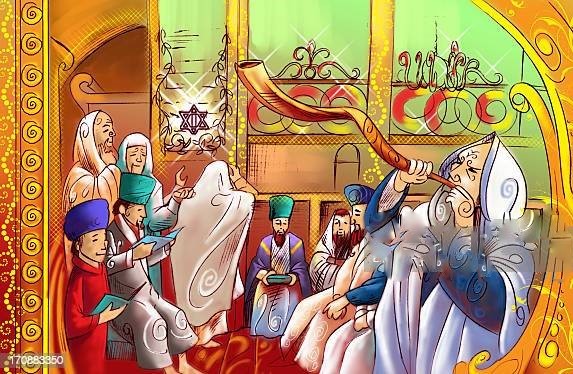 SATURDAY PRAYER: HOD-YESHIVAT HAVERIM יְשִׁיבָה חברים – BABYLONIAN TALMUD p159
SATURDAY PRAYER: HOD-YESHIVAT HAVERIM יְשִׁיבָה חברים – BABYLONIAN TALMUD p159

READING: BETWEEN MIDNIGHT AND DAWN OF SATURDAY
An objection was raised: It is written [Ex. xix. 10]: “Go unto the people, and sanctify them today
and to-morrow.” Is this not contradictory to the statement of R. Jossi (in whose opinion the
sanctification lasted three days)? R. Jossi may explain this thus: “Moses added one day upon his
own authority,” as we have learned in a Boraitha: “Three things were done by Moses upon his
own authority, and the Holy One, blessed be He, agreed thereto. They are: He added one day (to
the period of sanctification), he separated himself from a woman, and he broke the tablets into
pieces.” “He added one day upon his own authority.” What was his object? The Lord said unto
him: “To-day and to-morrow,” and he construed the words as follows: “To-day must be equal
(in duration) to tomorrow; as to-morrow includes the might, so must to-day; the night, however,
having already passed, another day must be added in order to make up for the lost night.”
Whence do we know that the Lord agreed to this? Because the Shekhina did not appear on
Mount Sinai until the Sabbath morn. What was the object of Moses in separating himself from a
woman? He applied the order given the Israelites (to separate themselves from their wives) to
himself in a so much larger degree (i.e., the order having been issued to the Israelites for the
reason that they would shortly hear the word of the Lord, it would be so much more proper for
him, who frequently was spoken to by the Lord, to separate himself entirely from a woman).
And whence do we know that the Lord agreed to this also? It is written [Deut. v. 27 and 28]:
“Go, say to them, Return you unto your tents. But as for thee, remain thou here by me.” And
what was his object in breaking the tablets? He thought: “As concerning the
[paragraph continues] Passover sacrifice, which is only one of the six hundred and thirteen
commandments, it is written [Ex. xii- 43]: ‘No stranger shall eat thereof,’ how can I give the
tablets, which contain all the commandments, to the children of Israel, who are now all
renegades?” And whence do we know that the Holy One, blessed be He, agreed even to this? It
is written [Ex. xxxiv. 1]: “And the Lord said unto Moses, Hew thyself two tables of stone like
unto the first; and I will write upon these tables the words which were on the first tables which
thou didst break.” Said Resh Lakish: “‘Which thou didst break’ really means, ‘which thou didst
break rightfully.'”
 HALF REDUCTION OF FLOW IN THE INNER LEFT COURT FOR GREATER DISCLOSURE OF THE UPPER FORCE
HALF REDUCTION OF FLOW IN THE INNER LEFT COURT FOR GREATER DISCLOSURE OF THE UPPER FORCE WEDNESDAY PRAYER: KETER-SHACHARIT שַחֲרִית MORNING PRAYER
WEDNESDAY PRAYER: KETER-SHACHARIT שַחֲרִית MORNING PRAYER WEDNESDAY PRAYER: KETER-TIKKUN CHATZOT תקון חצות-TIKKUN RACHEL & TIKKUN LEAH
WEDNESDAY PRAYER: KETER-TIKKUN CHATZOT תקון חצות-TIKKUN RACHEL & TIKKUN LEAH